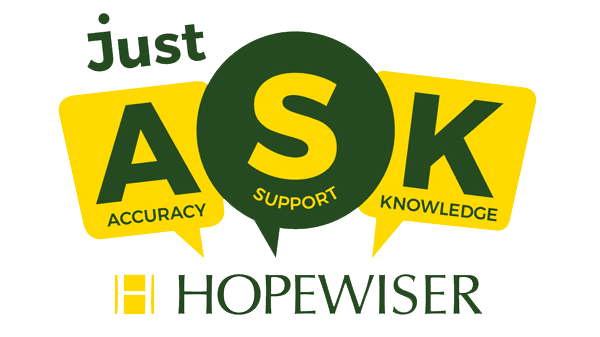New innovations in tech and software, as well as changes in the dynamic address data environment, will encourage organisations to equip themselves properly to adapt to the demands of 2024.
Understanding your businesses data and ensuring it is accurate and reliable can help to direct your decision making, it will contribute to ROI and help you highlight new opportunities.
To ensure success in 2024 you need to ask these key questions.
1. Is my data up to date?
We all know that data decays naturally, there are a range of circumstances that impact this. People move homes, change jobs, pass away or opt out.
Royal Mail’s Postcode Address File (PAF) is where we get our address and postcode data from. It is the most accurate address database in the UK, containing over 28 million addresses, with 1.5 million updates annually. Analytics have also shown that nearly 620,000 deaths were registered in the UK in 2023. That’s a lot of changes that need to be made to your database.
Each year, new addresses are added, chopped and changed so businesses must ensure they regularly cross-check their database with the latest sources of information. For more information about the various datasets you can use to optimise your data, read our free guide.
Ensuring you store the latest data in your organisation helps you maintain compliance with GDPR, allows you to understand your customers and identify new business opportunities.
If you are in need of Data Quality Services, Hopewiser’s Data Optimisation process cleans the quality of your data through assessments using a wide range of sources to enrich and suppress your data.
2. How should I approach data management?
Obtaining data is one thing, but being able to manage it is a different story. There are many methods to data management, but the one we are most keen on is Single Source of Truth.
A Single Source of Truth is the approach to data management whereby customer data is kept in one location and is the one source of information an organisation uses.
A single location for storing data makes it more convenient to access it, as well as providing easier GDPR compliance and increases operational efficiency. It also consolidates an organisations data and stops it from overlapping, providing you with a clearer, holistic view of data.
When data gets older it can lose accuracy and therefore value, and siloed data creates inconsistencies between departments. For instance, if the contact data of a customer is kept in different departments, over time it may become duplicated, lost or compromised when it is retrieved for use.
A Single Source of Truth approach to data management does enable data to be held in multiple locations, but the main component is to synchronise databases with one true source of data. For more information and our full guide on the Single Source of Truth, click here.
3. How can I improve data security?
Ensuring the security of customer data is number one priority for business practice. Data must not be compromised, stolen or misused at any point as this can lead to significant fines, damaged databases, confidential information being exposed, loss of income, reputational problems and legal charges.
Despite advancements in data security knowledge and technology, there were a number of notable breaches, leaks and hacks that made the headlines in 2023. For instance, the Police Service of Northern Ireland incident. Thousands of officers and staff had their name, location and job role, accidentally released online. This personal information put the lives of these workers at risk and damaged the reputation of the service.
So how should you improve your data security, operate safely and reduce the threat and impact of cyber attacks? IT Security Wire have highlighted the following methods:
- Use secure networks.
- Establish an Incident Response Plan.
- Encrypt sensitive data.
- Conduct employee training.
- Have cybersecurity insurance.
Businesses should also limit and monitor who has access to customer data and allocate the relevant resources to carry out the appropriate measures to ensure the secure keeping of data.
4. How can I ensure my data is high quality?
Data comes at you in high volumes from various origins and can have a significant impact on the success of your marketing and sales effort. The older data gets, the more likely it is to become outdated and incorrect causing a number of issues for any organisation. Hopewiser’s solutions ensure the data you have is high quality so you can provide the best services for your customers and allow you to make better business decisions.
Hopewiser’s Data Cleansing services are based on experience, in-house knowledge and the latest data sources. It is a validation process that maintains the accuracy of customer data as it naturally changes over time, allowing you access high quality data and pinpoint records in your database that are duplicates, deceased or goneaway.
Our Address Validation tool enriches data as it is entered. It can be integrated into websites, CRM systems or apps to provide accuracy at the point of entry. For instance, online shopping requires customers to enter their address data on web forms to complete purchases, this means there is a possibility that they enter invalid details by accident. This can lead to unsuccessful checkouts and misplaced deliveries, and will therefore harm the customer’s experience. Address Validation verifies data instantly to ensure deliveries are sent to the correct location by checking details entered against multiple address databases.
We help you achieve high quality data by checking your information against multiple reliable sources and datasets. For instance, we get grid references and UPRN’s (Unique Property Reference Numbers) from OS (Ordnance Survey) data. This helps with mapping and locating addresses for various logistical operations. We also use Royal Mail Multiple Residence data which provides address information for flats, apartment blocks, halls of residence and nursing homes. This is ideal to help you accurately deliver marketing and customer purchases to the correct recipient.
If you need a quality check, you can get a FREE Data Quality report, with no payment or credit card required. Our audits are straightforward and after completing a registration form on our website, all you need to do is upload your list and let our system do the rest. If you decide to cleanse all your data with our cloud service, our ‘pay-as-you-go’ model means no wastage – you only get what you need.
5. How can AI help my data (and can it be trusted)?
AI has become a driving force towards business success. It is used within many organisations to make decisions quickly, automate certain processes and tasks, or improve data analytics. There are of course risks and challenges to consider before fully embracing AI into our everyday lives, but if implemented effectively, it will continue to take the world by storm.
AI systems can analyse large sets of data, allowing us to uncover trends or patterns in consumer behaviour, and do so quickly and accurately. While AI is capable of identifying things that human analysts may miss, it still has risks and limitations. Algorithms used in AI are based on ideas from past data, so it will not always provide the most updated insights. AI also lacks the ‘human element’, meaning it is unable to make certain judgements, show emotional intelligence or build relationships which are important for a task such as making PR campaigns.
In the banking and finance sector organisations may use AI to carry out assessments of a clients creditworthiness. It will look at their history of finances and investments and carry out fraud detection processes. Banks need lots of information to make the best decisions, and AI is able to process this important data quickly and accurately. However, customers generally do not like the idea of computers having control over their financial matters. Only 5% of UK bank customers would prefer their interactions to be with AI and other automated systems rather than humans.
Overall, AI will undoubtedly help our society with technical tasks and provide new innovations, but it should be used to work safely alongside people, not in place of them. A UK Information Commissioner has warned people may lose their trust in AI unless it can clearly demonstrate its security and that it can comply with data protection laws. Will AI become the main method of data capture and analysis, or will people become more concerned than excited by it?
Do you have any more questions about address data? We’re here to help.

Accuracy, Support and Knowledge are at the heart of everything we do at Hopewiser.
Accuracy: Our rules-based solutions and services intelligently assess and match each address – that’s why our accuracy is trusted by High Street Banks, Police Forces, and commercial organisations of all sizes.
Support: The support we provide to our customers is backed by the specialists that have written the software in-house. This means you get access to their expertise. Our customers regularly praise the support team for its speed of service and problem solving capabilities.
Knowledge: We created the first address data software in 1982 and the sheer amount of data we have processed in that time sets us apart from everyone else in the market. So, if we do things a little differently from others, it might be because we have information they don’t.
Sources
Population Deaths in United Kingdom
Police Service of Northern Ireland statement on data breach
Five Ways Medium Small Business Can Strengthen Their Cybersecurity Landscape
5 Unique Ways to Use AI in Data Analytics
The irreplaceable human touch: why AI won’t take over
Survey reveals tech trust gap amongst UK bank customers
UK Information Commission warns against 2024 becoming the year people lose trust in AI
, updated 1st May 2025.









